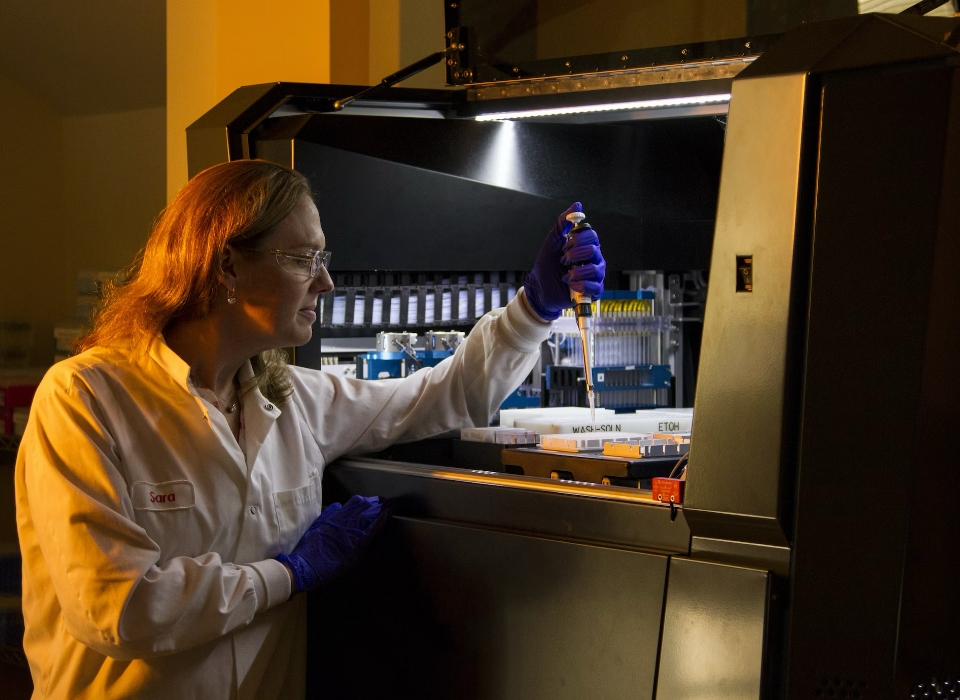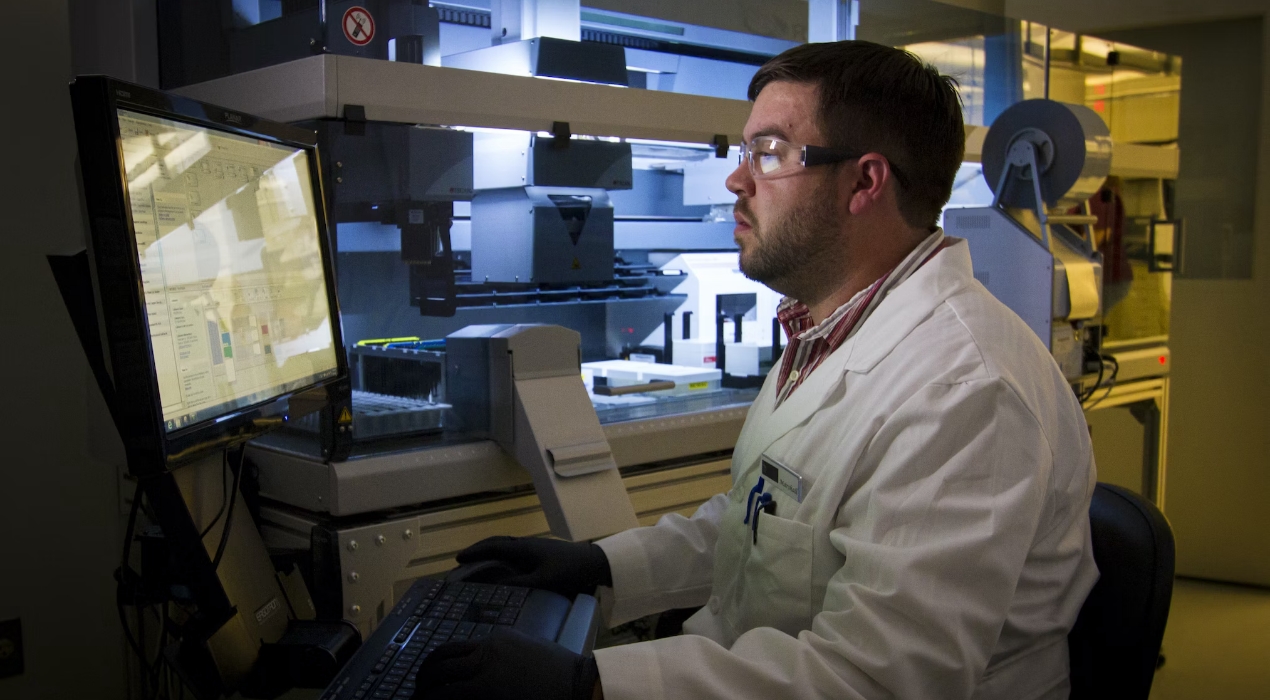View the full research paper on Nature Communications Objectives: This study aimed to explore how gene-environment interactions (GEIs) affect protein levels in the human body, specifically within the plasma proteome. The focus was on identifying variance quantitative trait loci (vQTLs) that signal these interactions, and understanding how genetic and environmental factors together influence protein expression.… Continue reading Systematic discovery of gene-environment interactions underlying the human plasma proteome in UK Biobank
Author: bioxcelerate
New Advances in Disease Risk Prediction
Objectives: The primary goal was to identify genetic variants linked to Alzheimer’s disease (AD) using advanced genomic techniques. The study aimed to enhance understanding of the genetic underpinnings of AD by employing sophisticated methods to analyse large-scale genomic data. Key objectives included pinpointing novel genetic variants associated with AD, elucidating their functional roles, and exploring… Continue reading New Advances in Disease Risk Prediction
isGWAS Showcased at ESHG2024 in Berlin
We are delighted to announce that bioXcelerate AI’s innovative work was showcased at the prestigious European Society of Human Genetics (ESHG) Conference in Berlin. The ESHG event is a key platform for geneticists from Europe and around the world to share breakthroughs and advancements in human genetics research. At the conference, Dr. Heiko Runz, a… Continue reading isGWAS Showcased at ESHG2024 in Berlin
bioXcelerate AI’s PleioGraph Featured in BioPharm International
We’re thrilled to announce that bioXcelerate AI’s latest product, PleioGraph, was recently featured in BioPharm International. This advanced AI tool is designed to accelerate the drug discovery process by leveraging machine learning algorithms to analyse biological data. PleioGraph helps drug developers identify genetic colocalization – the interaction between genes, proteins, and cells that lead to… Continue reading bioXcelerate AI’s PleioGraph Featured in BioPharm International
bioXcelerate AI Senior Team Recognized as Editors for Special Issue in Frontiers on Advances in Genetic Epidemiology
Chris Foley, Chief Scientist & Managing Director, and Zhana Kuncheva, Director of Health Data Science at bioXcelerate AI, were co-editors for a special issue in Frontiers “Methods in Applied Genetic Epidemiology 2022” – a field that had witnessed considerable growth in recent years. Foley and Kuncheva, both seasoned industry experts, boast a wealth of accomplishments… Continue reading bioXcelerate AI Senior Team Recognized as Editors for Special Issue in Frontiers on Advances in Genetic Epidemiology
Tracing Genetic Mechanisms Underlying Human Disease
In collaboration with one of the world’s leading Translational Biology teams, based at Biogen US, Optima’s Chief Data Scientist Dr Chris Foley’s research into the heritability of human disease now features in Nature, the world’s leading multidisciplinary science journal. Along with lead authors Dr Benjamin Sun and Dr Heiko Runz, Dr Foley is contributing to an international… Continue reading Tracing Genetic Mechanisms Underlying Human Disease
A fast and efficient colocalization algorithm for identifying shared genetic risk factors across multiple traits
Objectives: The overarching goal was to employ statistical colocalization as a means to elucidate the causal genes and underlying mechanisms implicated in complex diseases. This objective involved bridging the gap between genome-wide association studies (GWAS) and biological interpretations by prioritizing variants likely to be causal, assessing genetic overlap among related traits, and discerning the presence… Continue reading A fast and efficient colocalization algorithm for identifying shared genetic risk factors across multiple traits
MR-Clust: clustering of genetic variants in Mendelian randomization with similar causal estimates
Objectives: The research aimed to utilize Mendelian randomization (MR) as a robust epidemiological technique to investigate and estimate causal relationships between specific risk factors and their resultant outcomes. This study sought to leverage genetic variants as instrumental variables to provide a reliable framework for understanding the underlying causal mechanisms of various health conditions. Ultimately, the… Continue reading MR-Clust: clustering of genetic variants in Mendelian randomization with similar causal estimates
isGWAS: ultra-high-throughput, scalable and equitable inference of genetic associations with disease
Objective: The aim of this research was to develop scalable and efficient algorithms, namely the in-silico GWAS (isGWAS) and leapfrog re-sampler (LRS), to overcome significant challenges in genome-wide association studies (GWAS). These challenges include the dependency on sensitive individual-level data, daunting computational demands arising from increasing cohort sizes and genetic variants, and limitations in traditional… Continue reading isGWAS: ultra-high-throughput, scalable and equitable inference of genetic associations with disease
Blood protein levels predict leading incident morbidities and mortality in the UK Biobank
Objective: The overarching aim of this study was to explore the intricate relationship between the circulating proteome and age-related diseases and mortality using data from the UK Biobank. By analyzing blood data from 47,600 individuals over 16 years and linking it with electronic health records, our primary objective was to elucidate the associations between 1,468… Continue reading Blood protein levels predict leading incident morbidities and mortality in the UK Biobank










